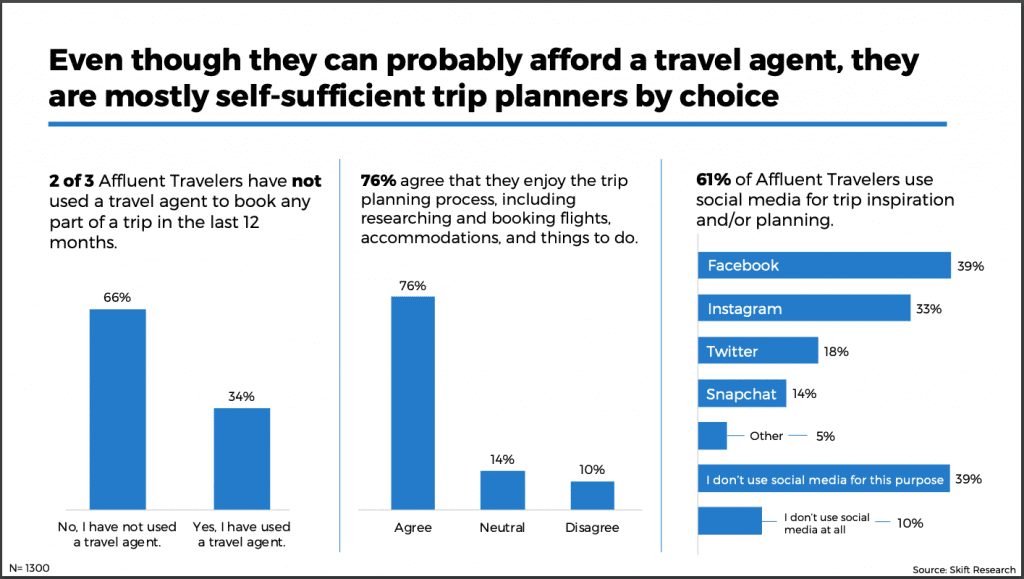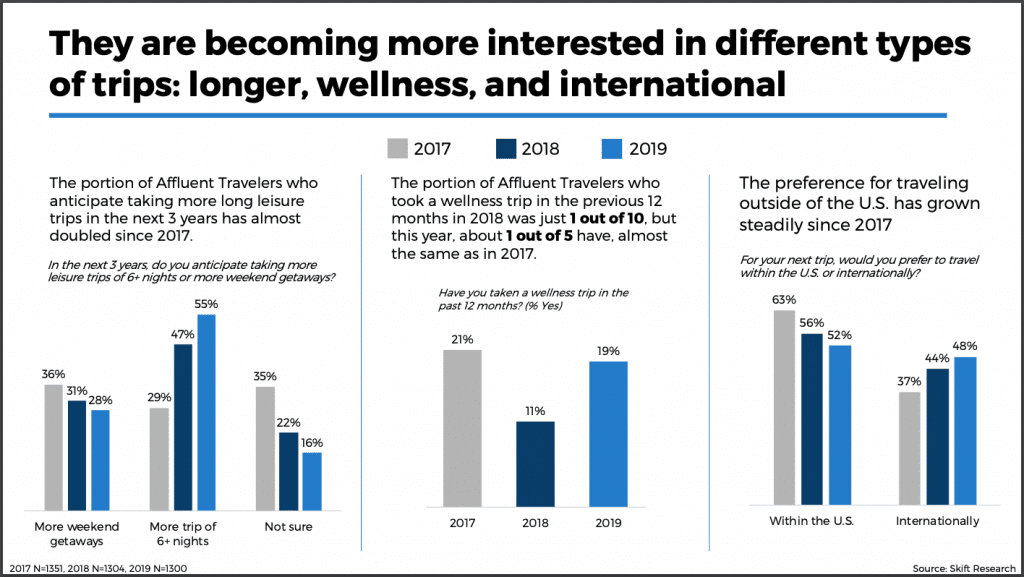Skift Take
In its third year, Skift Research’s U.S. Affluent Traveler Survey provides necessary insight for travel industry insiders by revealing the particularities of this lucrative target market.
Amid our ever-evolving world and industry, it’s a challenge for travel brands to keep tabs on consumer preferences. It’s with this challenge in mind that Skift has created a series of annual surveys focused on monitoring different cohorts of travelers.
The latest report presents the results of our U.S. Affluent Traveler Survey 2019. The report begins with some of the major trends for the year among the group that emerged from the latest data. We then focus on year-over-year comparisons to showcase those areas that have changed the most over time. The bulk of the report then analyzes the latest survey data based on certain characteristics of the respondents to provide a more detailed view of the variations within the larger U.S. affluent traveler group. In these sections, we examine respondents by income level, age group, and whether or not they have children in the home. By dissecting the data in all of these ways, we present a deep dive into the minds and behavior of U.S. affluent travelers today.
We published last week our latest report, U.S. Affluent Traveler Trends 2019: Annual Survey on Travel Behavior.
Below, we share a snippet of the survey results featured in the report. Get the full report here to stay ahead of these trends.
Preview and Buy the Full Report
According to 2019 data, we see that the majority of U.S. affluent travelers have not used a travel agent to book any part of a trip in the last year. In fact, we see that most actually enjoy the trip planning and booking process, and turn to social media to help them along.
When looking at behavior and preferences over time, we observe that the types of trips U.S. affluent travelers are interested has changed. They are now more interested in longer trips, wellness trips, and traveling internationally.
This year’s survey also revealed some important trends related to family travel when we compared U.S. affluent travelers with and without kids under 18 in the home. For example, the data show that those with kids tend to stay in more expensive hotels and in alternative accommodations more than their peers without kids.
This is the latest in a series of research reports aimed at analyzing the fault lines of disruption in travel. These reports are intended for the busy travel industry decision maker. Tap into the opinions and insights of our seasoned network of staffers and contributors. Over 200 hours of desk research, data collection, and/or analysis goes into each report.
After you subscribe, you will gain access to our entire vault of reports, analyst sessions, and data sheets conducted on topics ranging from technology to marketing strategy to deep-dives on key travel brands. Reports are available online in a responsive design format, or you can also buy each report a la carte at a higher price.
Have a confidential tip for Skift? Get in touch
Tags: consumer insights, skift research, survey
Photo credit: Although their incomes are all relatively high, U.S. affluent travelers have varying travel preferences. Above, four people enjoy time on a yacht. Bruce Mars / Pexels



